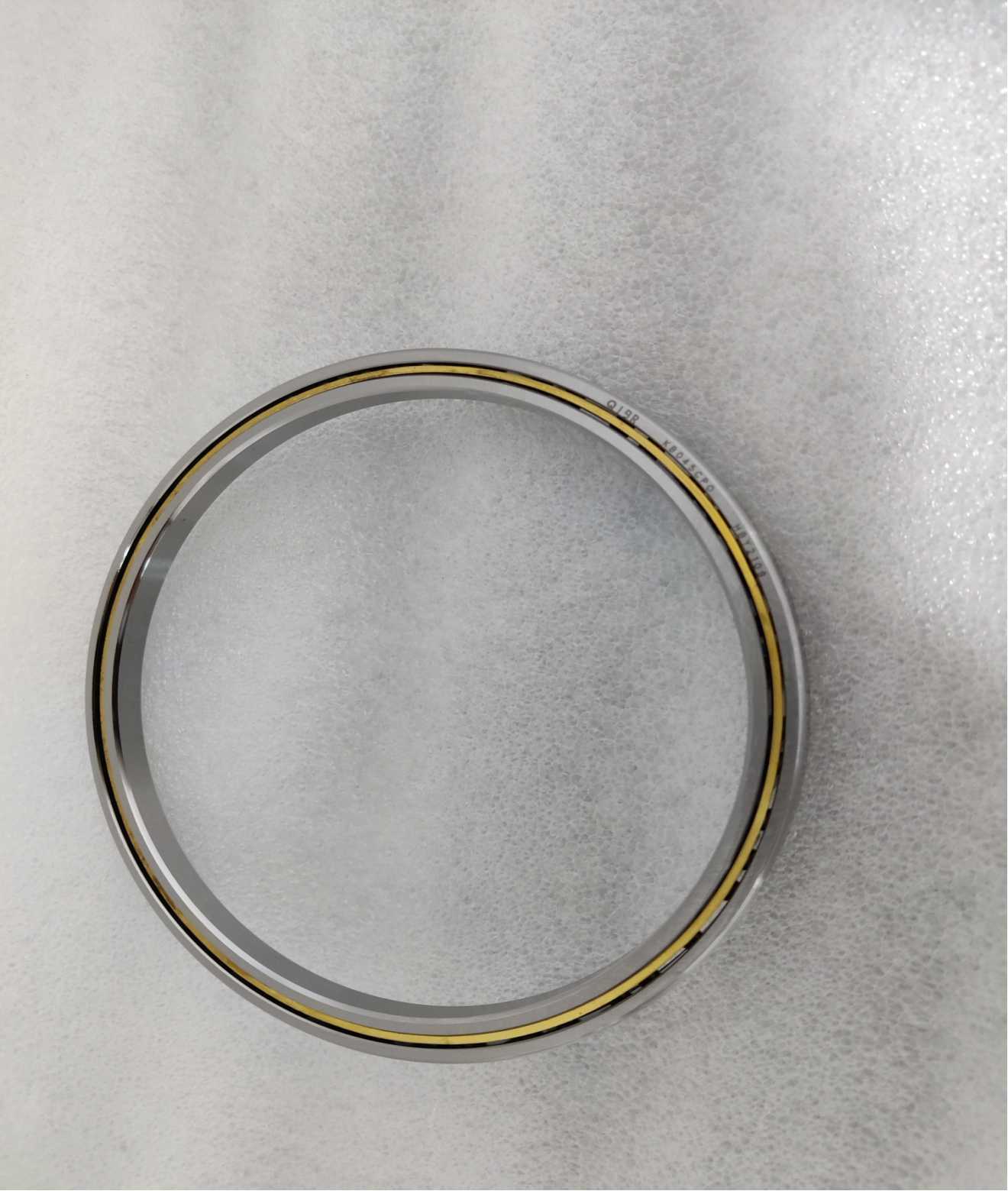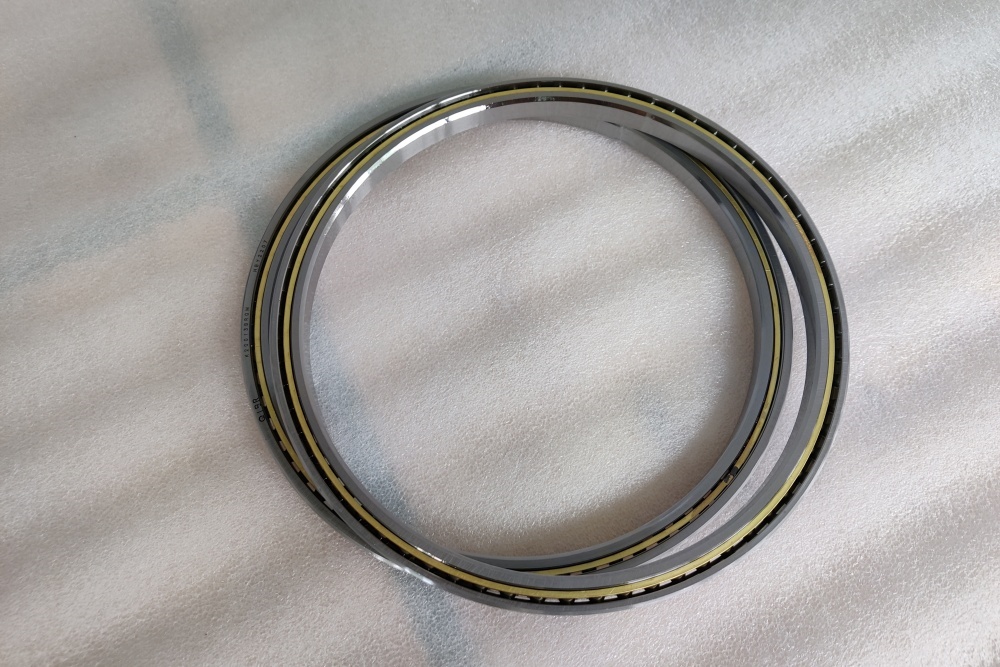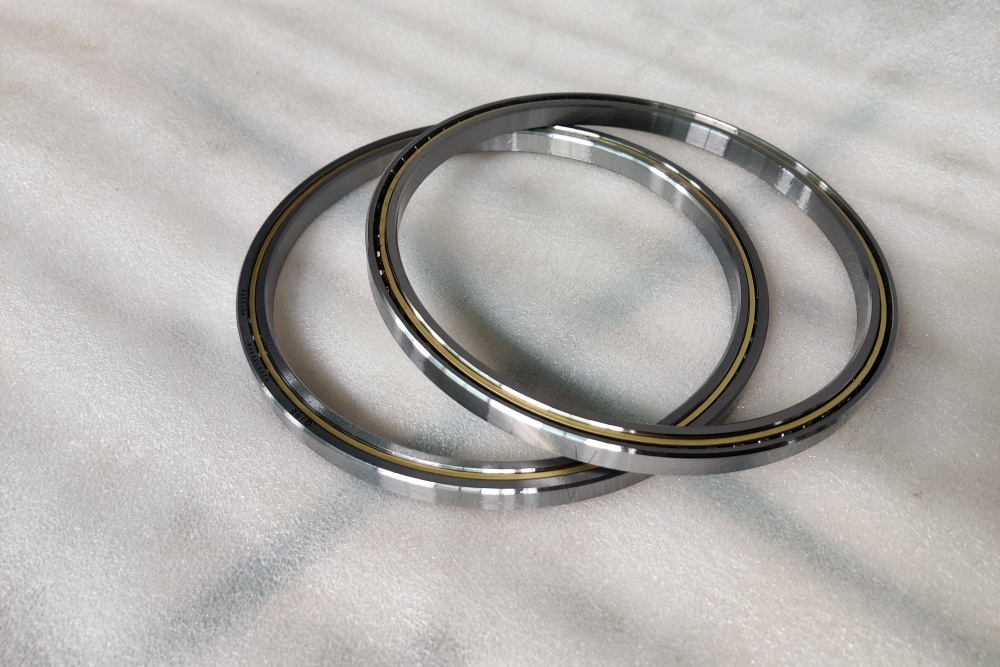Newsroom
Thin section ball bearing
2025-04-08A thin section ball bearing is a specialized type of bearing designed with an unusually small cross-section (the distance between the inner and outer race), even as the bore size increases. This makes them ideal for applications where space and weight savings are critical.

Here’s a breakdown of its features and applications:
1.Key Features:
I.Compact and Lightweight
- Designed with a thin radial section, reducing size and weight.
- Cross-section remains constant as the bore size increases.
II.Three Main Types
- Radial Contact (Type C): Handles radial loads.
- Angular Contact (Type A): Handles both radial and axial loads.
- Four-point Contact (Type X): Handles radial, axial, and moment loads.
III.Material Options
- Chrome steel or stainless steel for standard use.
- Ceramic balls for hybrid versions (higher speed, corrosion resistance).
IV.High Precision, Low Torque
- Used in high-performance environments with low rotational resistance.

2.Applications of thin section ball bearing
- Robotics and automation
- Medical devices (e.g., CT scanners)
- Aerospace and defense
- Semiconductor equipment
- Gimbals, rotary encoders, optical instruments

3.Example Designation
KA020XP0
- K: Thin section series
- A: Type A (angular contact)
- 020: 2.0" bore size (inches)
- XP0: Four-point contact, light preload

For more information, feel free to contact QIBR


